German voters will be heading to the polls on February 23 after the ruling three-way coalition collapsed last month. The parties – from the far-left to the far-right – have already unveiled their policies, including their stance on immigration and asylum. InfoMigrants takes a closer look.
CDU/CSU
The Christian Democrats (CDU) and their Bavarian sister party (CSU) are expected to make gains in this election – likely enough to gain a mandate to form a new government with coalition partners. Current polls suggest that the center-right party might get as much as a third of the vote.
Former Chancellor Angela Merkel's party, however, appears to have shifted its views and approach over the past decade on migration matters. The "Welcome Refugees" culture that was promoted by Merkel at the height of the so-called "refugee crisis" of 2015 and 2016 has since been replaced by a much tougher stance by current party leader and candidate for chancellorship, Friedrich Merz.
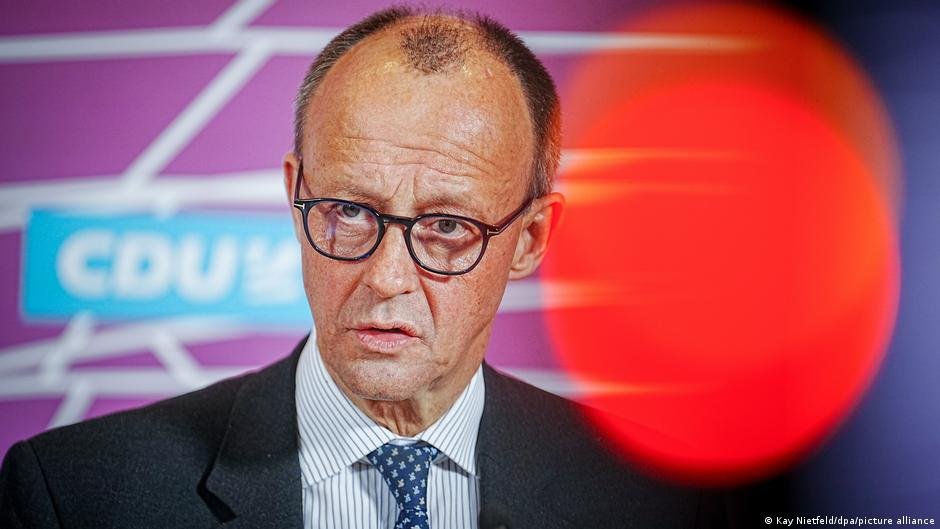
The former investment banker wants to move his party and the government itself further to the right, advocating for major changes in Germany's asylum policy. Among other things, the CDU manifesto for the upcoming election calls for the abolition of subsidiary protection for asylum seekers, for more limits on family reunification and for more deportations by rubber-stamping more countries of origin as "safe."
Read AlsoGermany: CDU's Spahn says non-integrated Syrians should go
The party is also pushing for an overall change in EU asylum policy, seeking to move processing and admission of asylum seekers to outside the bloc's external borders, effectively looking for third countries to deal with people seeking protection. Some of the CDU proposals, however, could prove difficult to put into practice, as they clash with existing EU law.
Also read: CDU/CSU manifesto (in German)
SPD
The Social Democrats are almost certain to suffer significant losses and are projected to fall to third place at the polls. Outgoing Chancellor Olaf Scholz from the SPD has been largely blamed by the electorate for the collapse of the government, despite the fact that it was one of his coalition partners that decided to pull out and thus elicit early elections.
Against this backdrop, the SPD is largely advocating in favor of migration, seeking to promote Germany as a "modern immigration society," according to its manifesto. At the beginning of the section on immigration, it highlights the fact that Germany remains in need of skilled workers, among an ageing society and continuously low birth rates. The party says it wants to promote controlled and legal channels of immigration, with a particular focus on filling gaps in the labor market.
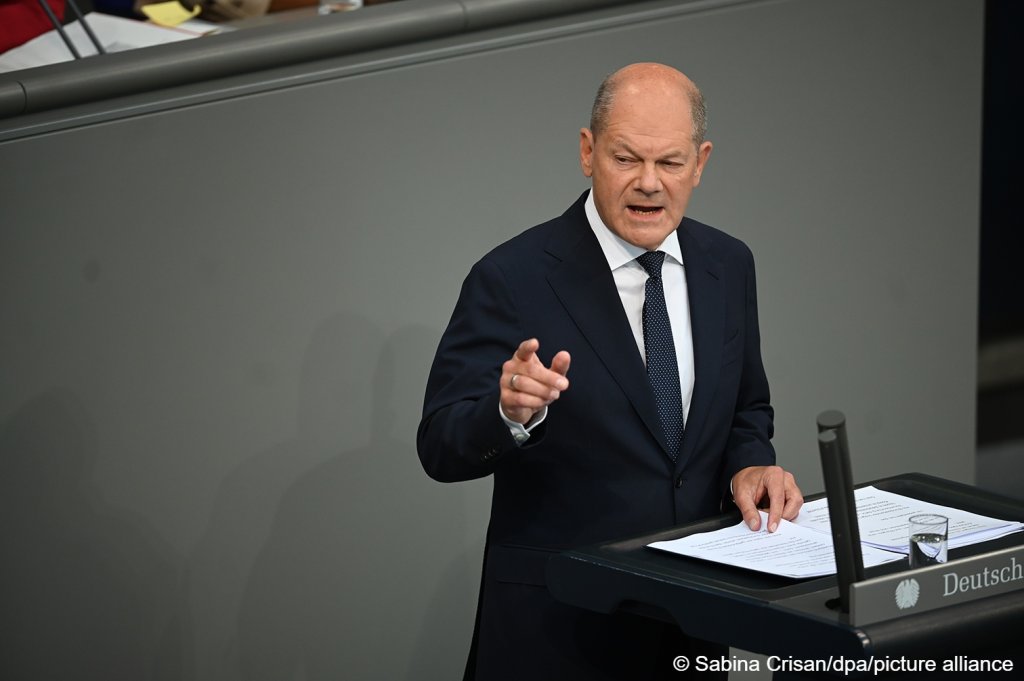
The SPD also continues to advocate the speeding up of asylum procedures – both in cases that eventually succeed and those that are rejected. To this end, it also wants to accelerate deportations, while stressing that these have to remain "humane."
The SPD manifesto also clearly states that the party is opposed to the idea of working with third countries to outsource asylum proceedings.
Also read: SPD manifesto (in German)
AfD
This election may be the most successful yet for the Alternative for Germany (AfD), with current projections placing the far-right party in second place with about a fifth of the vote. Known for its populist and sometimes extremist rhetoric, the AfD is highly unlikely to become part of any coalition government, since all other parties have pledged not to enter negotiations with the AfD. However, depending on its ultimate size and shape in the Bundestag, Germany's lower house of parliament, the AfD could still have a significant influence on migration policy even as an opposition party, either by derailing government plans that require a parliamentary vote or by supporting anti-immigrant policies.
In its own manifesto, the AfD seems to have sprinkled immigration-related issues all over the 96-page document, with some of its ideas sounding impractical at best and outlandish at worst. Among other things, the right-wing party wants to reintroduce fully functional border checkpoints to take greater control over (irregular) migration; it also wants to fill gaps in the labor market by introducing incentives to have more children rather than relying on immigrants to fill this jobs and rejects the notion that Islam is compatible with Germany's overall culture and customs.
Read AlsoGermany's Scholz worried by far-right surge in regional elections
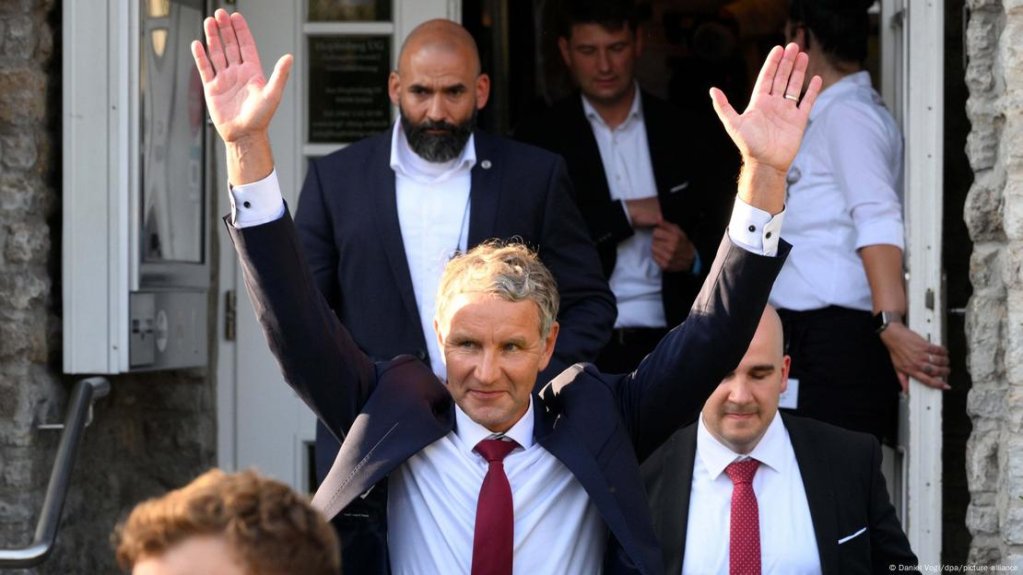
On the issue of asylum in particular, the AfD wants an overhaul of the entire system with the primary aim of limiting asylum to those who can prove they suffer persecution and that their lives at home are under threat. The party wants to externalize asylum procedures to third countries, highlighting in its manifesto that mass asylum processing centers could be build in countries in Northern Africa, for example.
The AfD even considers the Geneva Refugee Convention as outdated and calls for an overhaul in international law.
Also read: AfD manifesto (in German)
The Greens
Often touted as the most progressive party in Germany, The Greens have been enjoying steady growth in recent years. However, the collapse of the three-way coalition with the SPD and the FDP parties last month appears to have shaken more than just the public image of the party. According to current polls, The Greens are likely to score fourth place, with about 11 percent of the vote – marking a loss of several percentage points from the last election.
The party states in its manifesto that it wants to remove unnecessary bureaucratic hurdles to further facilitate employment-based immigration to Germany and also speed up processing times for highly-skilled workers.
Read AlsoGerman government funding of sea rescue organizations draws criticism

The Greens also promote Germany as a country that has a "humanitarian responsibility" to help people escaping war and persecution and don't seek to enact any major changes to Germany's asylum policy. To this end, they also defend Germany's support of private sea rescue operations in the Mediterranean Sea.
More so than the other German parties, The Greens also want to further integrate legal immigration and asylum rights into a single comprehensive system, highlighting in particular the scope for opportunities for asylum seekers to receive training in understaffed jobs in Germany and thus turn their legal status from refugee to labor-based immigrant.
The party also wants to further integrate the EU and its international partners into Germany's own asylum procedures, for example by signing more bilateral agreements with other countries for attracting skilled workers.
Also read: The Greens manifesto (in German)
FDP
The Free Liberals (FDP) are still reeling from their departure from the ruling coalition. They are largely seen as the main reason that Germany was forced to hold early elections, and this is reflected in their falling popularity. The party is presently projected to get less than half of the 11 percent share it received in the last general elections in 2021, and might even dip below the 5 percent threshold, which under German election law would disqualify it from entering the Bundestag.
The party is traditionally seen as being in support of multiculturalism and fostering legal immigration channels. In its manifesto for the February 2025 election, however, the party introduces a new term, stating that Germany is in need of "Realpolitik" when it comes to migration.
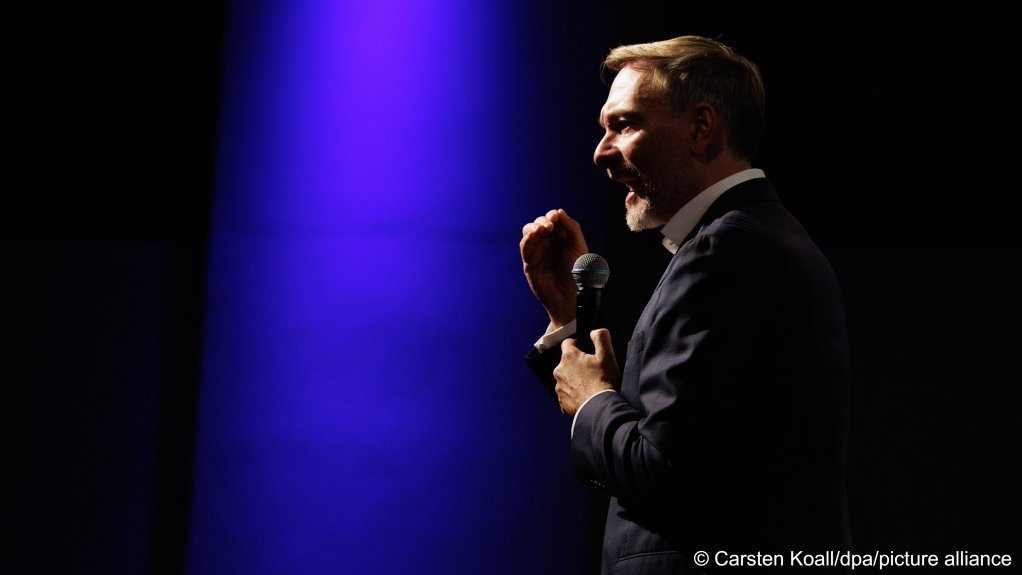
Seeking to shift the focus from asylum to labor-based immigration, it wants to enable asylum seekers to be allowed into gainful employment as quickly as possible, and also suggests training recognized refugees in jobs that are in high demand in the labor market.
The FDP advocates the disbanding of the all existing government authorities in charge of migration issues and promotes the idea of unifying all immigration matters into a single, centralized government authority that operates independent of the federal states system instead.
The party also wants to make sure that people without permission to remain in Germany are forced to leave, and suggests a freeze on all welfare support for those who are pegged to be deported. It also wants to stop family reunification for those granted the lesser status of subsidiary protection.
Also read: FDP manifesto (in German)
The Left
The Left party has not issued its manifesto yet, which will only be made public after its meeting in January to discuss its strategy for the upcoming election. The party, whose roots date back to the former Communist East Germany, stands for socialist policies but has lost support, trailing at about 2.5 percent of the vote. With a few Left Party strongholds remaining in eastern Germany, the party could get a number of delegates into the Bundestag via direct mandate votes. Traditionally, The Left party has been a major force in challenging anti-migrant decisions taken in the Bundestag, and has a track record of submitting hard-hitting questions that often uncover irregularities in Germany's migration policies.

On its website, it stresses the importance of solidarity with people fleeing war and persecution, but also addresses some of the root causes of migration. It advocates an end to war and wants Germany to stop its involvement in all armed conflicts. It also demands a moratorium on all deportations and says everyone currently in Germany should be given a one-off right to remain.
In the long term, it advocates that anyone who has been in Germany legally for five years should be given the permanent right to stay. It also wants to overhaul the initial stages involved in asylum procedures, especially focusing on the conditions at first arrival centers and large-scale asylum accommodation.
Also read: The Left official position on migration (in German)
BSW
The Sahra Wagenknecht Alliance party (Bündnis Sahra Wagenknecht, BSW) was formed at the beginning of 2024 by former Left Party leader Sahra Wagenknecht, and is widely perceived as a populist version of far-left politics with a conservative slant. It will be entering the general election for the first time and is projected to score about 8 percent of the vote, taking many votes from former Left Party supporters.
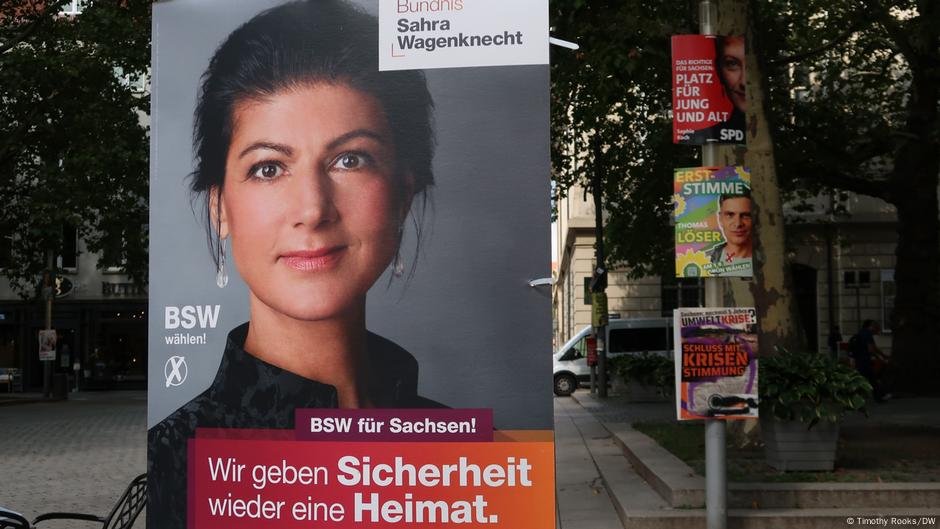
The new party has not published a comprehensive manifesto yet but says in a four-page mission statement that it supports the introduction of further limitations on immigration.
It also seeks to create jobs for unemployed Germans rather than filling these positions with foreign skilled workers. The BSW also states that too much immigration to Germany had resulted in too much "competition" not only on the labor market but also in housing.
Also read: BSW mission statement (in German)
